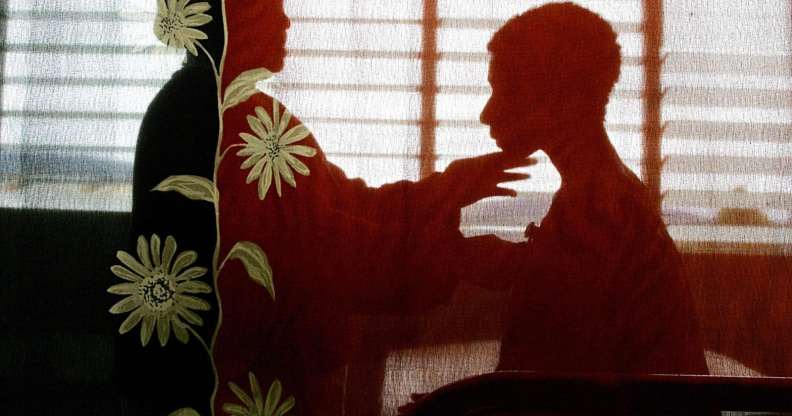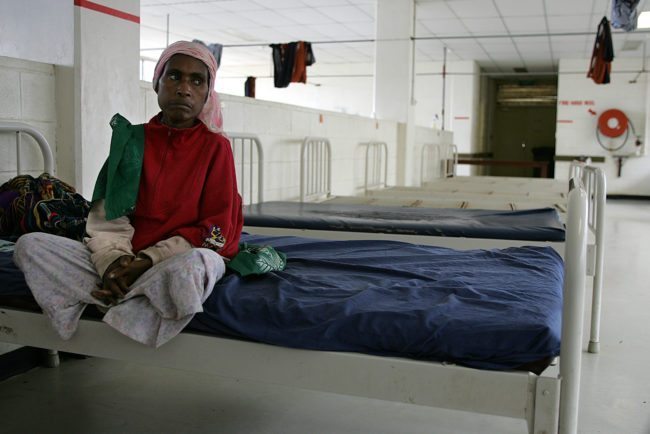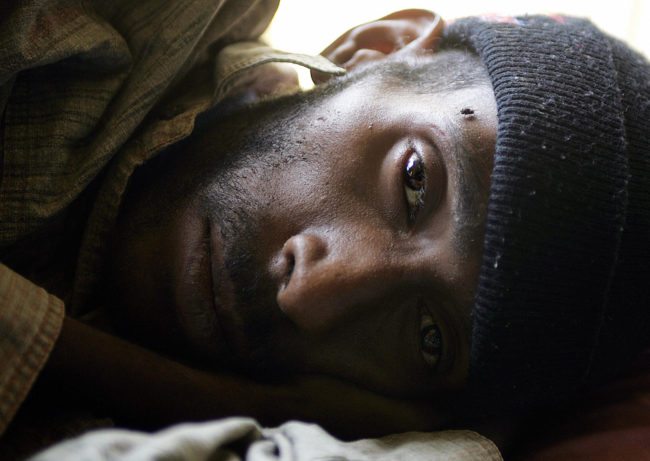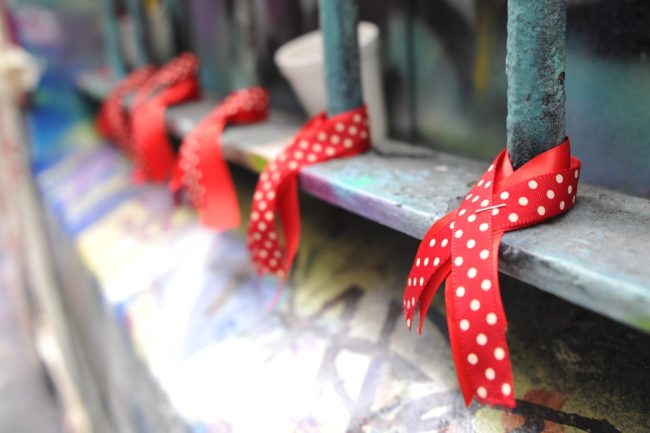Emergency supply of HIV drugs granted to Papua New Guinea

Mount Hagen, PAPUA NEW GUINEA: TO GO WITH Health-lifestyle-PNG-AIDS-witchcraft,FEATURE (FILES) This file photo dated 13 August, 2004 shows Oldi Kits (R) from the village of Nebliya being informed by a nurse that she has contracted AIDS from her husband after her blood tests came back positive at Mount Hagen General Hospital, as the epidemic continues to increase annually by over 20 percent across Papua New Guinea. Women accused of being witches have been tortured and murdered by mobs holding them responsible for the apparently inexplicable deaths of young people stricken by the AIDS epidemic. AFP PHOTO / FILES / Torsten BLACKWOOD (Photo credit should read TORSTEN BLACKWOOD/AFP/Getty Images)
HIV-positive Papua New Guineans can breathe a small sigh of relief after an “emergency” supply of HIV medication has been granted.
The anti retroviral drugs (ARVs) which prevent the growth of the HIV virus have been in short supply for more than a month.
And now, the country has a supply that will last them until the end of 2018.
“We worked with UNAIDS and UNICEF who are mobilising another three to four month of anti-retrovirals. I’m assured by our UNICEF team that this will be in the country within two weeks,” the country’s Health minister Puka Temu told parliament, reported Gay Star News.

Rachael from Kagua patiently awaits medical attention at the decrepid Tininga AIDS ward of Mount Hagen General Hospital ( TORSTEN BLACKWOOD/AFP/Getty Images)
‘We did an emergency order, and I want to assure that 500,000 tablets are sitting at the customs,’ he added.
Budgeting cuts from the government’s Department of Health had plummeted stocks to a record low, leading campaigners to call the deficit a crisis.

Samuel from Kainantu awaits medical treatment in the AIDS ward of Goroka General Hospita ( TORSTEN BLACKWOOD/AFP/Getty Images)
They approved 4.5 million kina to order extra drugs to the country- which is the equivalent of £10,288,460.
Campaigner Lesley Bola said that the government promised to replenish the supply come the end of the year, reports Radio NZ.
Although the government have failed to do this during dry spells in the past, Bola said the situation looks “positive.”

“It looks positive, and I am determined that there’s going to be work done, and it will be done as long as we are here to advocate to the government,” said HIV advocate and campaigner Lesley Bola to RNZ.
The world was alerted to the problem in April.
Campaigners said that the country was eating into its “buffer stock” of treatment.

Red ribbons, a symbol of solidarity for people living with HIV/AIDS (ESTHER LIM/AFP/Getty Images)
“Miracle potions” loaded with herbs and urine have been sold as methods to combat HIV in the midst of the shortage, said the news outlet.
“We’re talking about quite a serious situation … where we are now currently eating into our three- to six-month buffer stock of anti-retroviral treatment,” said David Bridger, the head of UNAIDS in Papua New Guinea.
The country accounts for 95 percent of all HIV cases in the Pacific.

